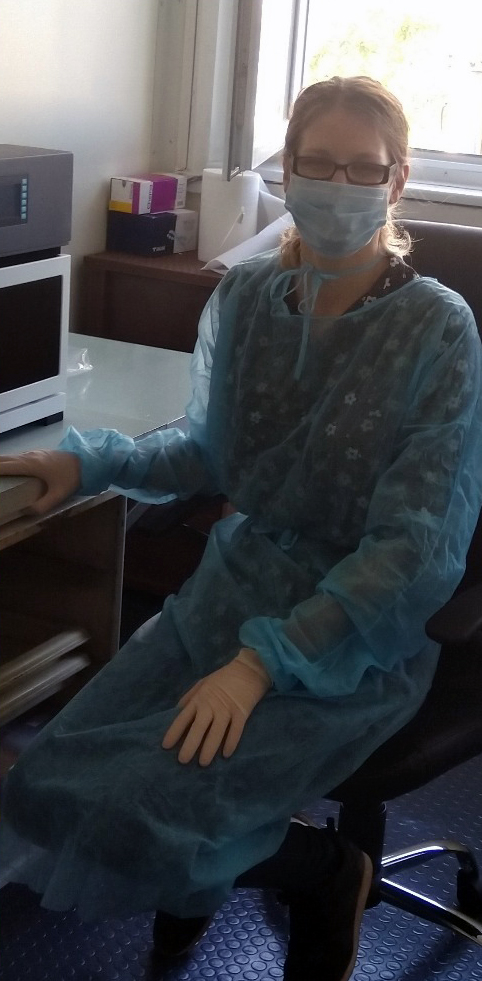Mariya Chepisheva is a third year PhD student in the Department of Brain Sciences. However, more recently, she spent time volunteering in her home country of Bulgaria to support the COVID-19 testing effort. Here, Mariya shares her experiences of working in a clinical lab during the pandemic.

I’m currently in the third year of my PhD. My project concentrates on vestibular perception, postural control and spatial orientation in patients with acute and chronic progressive affections of the central nervous system. In order to answer the questions central to my research, I’m using Virtual Reality (VR), 3D body tracking and magnetic resonance imaging (MRI) to learn more about the perception of balance and spatial orientation under vestibular guidance.
However, I recently spent two months volunteering my expertise as a molecular biologist, so as to provide a small contribution to my community in light of COVID-19. Having various skills in different fields always puts you in a situation where you can and want to help others.
To help meet the demand for COVID-19 related tests, I volunteered part-time in a clinical laboratory for biochemical and haematological analysis located in the town hospital of Haskovo, Bulgaria. This was not my first time volunteering here, as I helped on a full-time basis in the summer of 2017. Back then, I performed biochemical (approximately 35 parameters) and haematological analysis (complete blood count, PTT, aPTT, fibrinogen activity and erythrocyte sedimentation), hormones, tumour markers, ELISA, HIV 1/2, Hepatitis B and C, Syphilis tests. I remember how afraid of blood I was at the time, and I’m truly proud of myself and how working in a clinical laboratory has totally changed my attitude and erased my fear. Working with thousands of blood samples all day, every day was a step that I took to grow, not only as a molecular biologist broadening my horizons and skills to work with human tissue, but also as a human being helping others.
This summer in the lab, we concentrated on COVID-19 quick tests, COVID-19 related PCRs and COVID-19 antibody tests. It was a great experience to be able to help my former colleagues and supervisor – the manager of the clinical laboratory, Dr Margaritova – who is an amazing and highly trained specialist. Along the way, we met many people and heard their personal stories of trying to get through the pandemic. In Bulgaria, the rate of infection and the number of confirmed cases and deaths remain low in comparison to other countries. This is due to the efforts of the country’s National Health System and the people who are adhering to the many rules – Bulgaria would not be able to financially cope were the number of cases to become too high. Everyone in the hospital is maintaining a high standard of hygiene in their working environment and in their interactions with colleagues and patients – masks, gloves, safety equipment are part of everyday life for all of us.
We saw it all: the big panic and the better days. Bulgaria is located on the Balkan peninsula and therefore sees many travellers who are headed for their holidays to Greece and Turkey. This created additional pressure on testing services: it was not only workers coming back home from abroad, students returning for the summer holiday, office workers and school-age children that we tested, but also a huge amount of holidaymakers. There were many situations in which citizens from foreign countries needed to be tested as part of their journeys south or north. There were also quite sad cases where people were unsuccessfully trying to travel from Bulgaria to countries where their loved ones had passed away, but flights to these countries were banned as to keep Bulgaria safe.
I am grateful to have witnessed these personal stories, and I am grateful that I had the energy to volunteer. It’s given me the confidence to know that I didn’t stay passive when the people around me needed help.